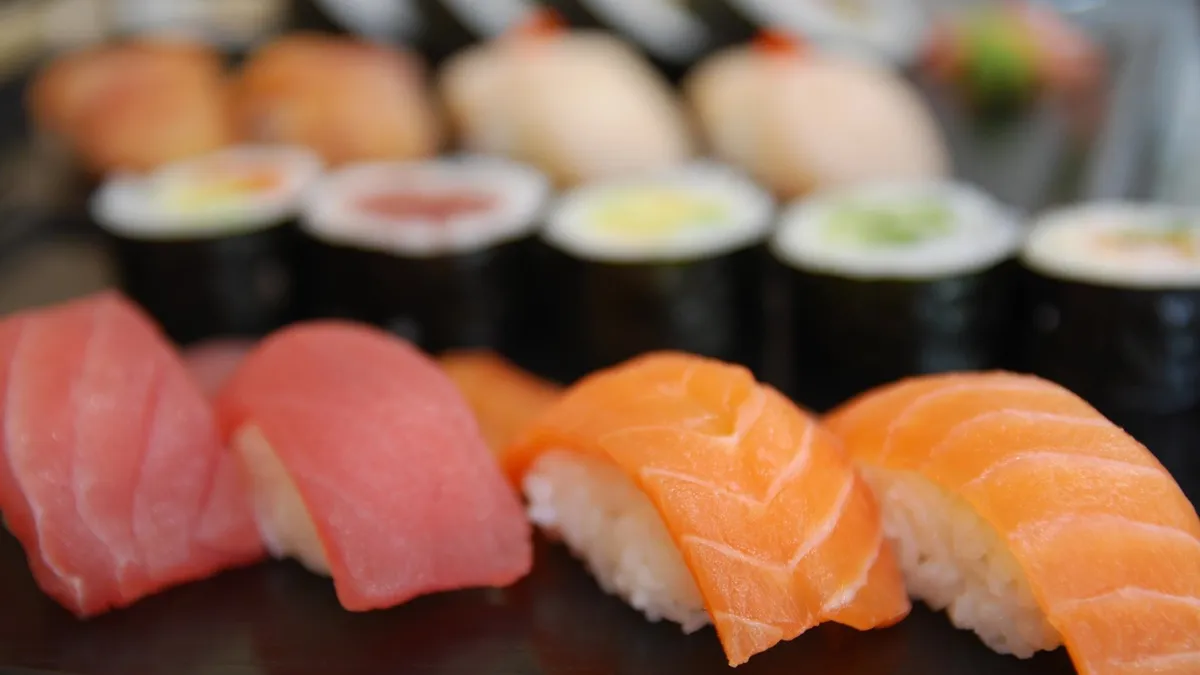Dive Brief:
- Hy-Vee has transitioned 100% of its sushi offerings to sustainable sources, according to Progressive Grocer.
- The retailer currently has 245 stores in the Midwest, and each will now offer seafood only caught in an environmentally and socially responsible manner.
- Ahi tuna used in the retailer’s Nori Sushi is now made with Seafood Watch green-rated, Fair Trade-certified yellowfin tuna, while its tempura and ebi shrimp are from BAP 3 Star- and BAP 4 Star-certified sources.
Dive Insight:
Hy-Vee Inc. recently updated its Seafood Procurement Policy on its website, letting consumers know it now sources seafood in its fresh-made Nori Sushi bars and Hy-Vee Market Grille restaurants certified to an environmental standard considered the benchmark in the industry. The policy also includes sustainable shelf-stable tuna, another seafood item that consumers are sometimes reluctant to buy because of reported unsafe practices in the industry.
Environmental and social issues are building traction in the industry, as numerous grocery retailers have been making sustainable seafood commitments. And why wouldn’t they? Sustainability is top of mind for many shoppers, and people are usually willing to pay more for products that use ethically sourced ingredients, transparent supply chains and boast sustainability claims.
A recent survey by Globalscan on behalf of the Marine Stewardship Council revealed seafood consumers rate sustainability above even price and brand when selecting fish, shrimp, lobster and other seafood items.
Progressive Grocer’s recent 2017 Retail Seafood Review also noted 55.8% of supermarket executives surveyed foresee category sales will increase this year with consumers buying less beef, chicken and pork because of concerns over its impact on health and issues tied to animal welfare and environmental sustainability. Retailers should prepare for this uptick in seafood demand by reviewing their sourcing policies and making sure they meet current industry standards. To better communicate with shoppers what they are doing at their stores, retailers should invest in signage and other advertising measures to make sourcing methods clear to shoppers.








